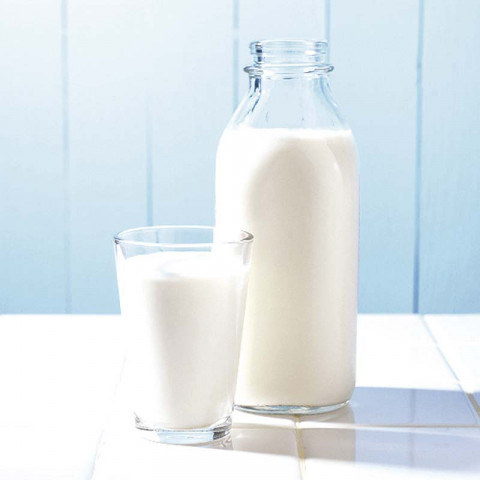5 nutrition misconceptions you need to put to rest
Did you know that egg yolks aren’t health demons and protein shakes aren’t the best for weight loss?

5 nutrition misconceptions you need to put to rest
1. Animal milk is necessary for healthy development

Milk, and other dairy products, are generally associated to strong bones and growth in food culture. A glass of doodh with breakfast or before sleeping is standard for most of us. The idea that milk is healthy is certainly not true for everyone, and some would argue for no one. Many believe that humans are not meant to consume milk from other species, as our bodies are not built to digest it properly. “The countries with the highest rates of osteoporosis are the ones where people drink the most milk and have the most calcium in their diets. The connection between calcium consumption and bone health is actually very weak, and the connection between dairy consumption and bone health is almost nonexistent,” shares Amy Lanou, nutrition director for the Physicians Committee for Responsible Medicine in Washington, DC.
2. You’ll gain weight if you eat late at night
Eat breakfast like a king, lunch like a queen and dinner like a pauper — we have all heard this saying at some point in our lives! Lisa Mallonee, a registered dietician with the Texas A&M University Baylor College of Dentistry, disagrees. She suggests that it doesn’t matter what time you’re eating as much as what you are eating. “This is more about portion control and how you’re expending calories,” she shares. “It doesn’t matter what time of day you eat as long as you are eating a balanced diet, consuming foods in moderation and burning off more calories than you consume.” That said, don’t down soda and nimco right before you hit the sheets, and if you do, let’s practice moderation please!
3. Protein shakes are the best post-workout drink

Not always. If weight loss is your goal, then lose these and instead, try green tea! Research suggests that Brazilian scientists found that participants who consumed three cups of the beverage every day for a week had fewer markers of the cell damage caused by resistance to exercise. That means that green tea can also help you recover faster after an intense workout. In another study, participants who combined a daily habit of four to five cups of green tea each day with a 25-minute workout for 12 weeks lost an average of two more pounds than the non-tea-drinking exercisers. Disclaimer: we’re not saying that protein shakes are evil, but they’re better suited to those who are looking to build up considerable amounts of muscle.
4. Carbs make you fat
Carbs alone cannot cause you to gain weight — instead, it’s the type of carbs we choose to consume that lead to more fat cells in the body. “We need carbs because they are the body’s main source of fuel,” Mallonee says. “The real problem with carbohydrates lies in the typical diet, rich in refined carbs and processed foods. Binging on these carbohydrates will contribute to weight gain.” Mallonee recommends eating a balanced diet higher in complex carbs, such as daal and oatmeal, and lower in simple or processed carbs, like mum’s halwa, chocolates and biscuits. “The average person needs to be consuming more fruits, vegetables and whole grains and less processed foods, refined carbohydrates and white flour products,” she adds.
5. Egg yolks raise your cholesterol

Egg yolks contain dietary cholesterol — this is definitely a fact — but latest scientific research has proven that dietary cholesterol has almost nothing to do with serum cholesterol, the stuff in your blood. Wake Forest University researchers reviewed more than 30 egg studies and found no correlation between egg consumption and heart disease, and a study in Saint Louis found that consuming this ‘every-home-staple’ for breakfast could, in fact, decrease your calorie intake for the remainder of the day. Now that’s a winning revelation to a lot of us that have half-heartedly given up their beloved yolks in fear of raising their cholesterol levels.
Published in The Express Tribune, March 7th, 2016.
Like Life & Style on Facebook, follow @ETLifeandStyle on Twitter for the latest in fashion, gossip and entertainment.



















COMMENTS
Comments are moderated and generally will be posted if they are on-topic and not abusive.
For more information, please see our Comments FAQ